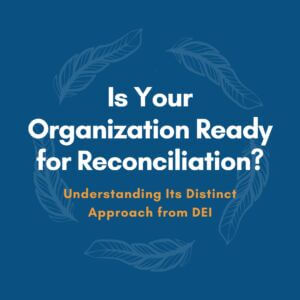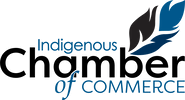By Gabriel Louër

In recent years, Diversity, Equity, and Inclusion (DEI) initiatives have expanded to become integral components of any organization's core values. Part of its popularity can be attributed to its aim of addressing historical injustices faced by marginalized individuals; now a deeply held priority for many in today’s society.
At its core, DEI seeks to promote an inclusive social structure within an organization, and society at large, so as to foster a progressive culture geared toward addressing society’s shortcomings. What this means may differ from one organization to the next, however, the ultimate goal remains the same: to create a welcoming environment for all.
The scope of DEI is incredibly broad and all-encompassing. Unlike Truth & Reconciliation, however, DEI does not promote a specific mandate or policy practicum. Rather, it aims to provide a general guideline by which organizational structures can be designed. This difference can be attributed, in part, to the genesis of each program.
Whereas DEI was informally born out of society’s desire for reform and redress, Truth & Reconciliation is much more comprehensive and incisive. More specifically, Truth & Reconciliation is tied to the historical injustices that have been faced by Canada’s Indigenous communities, such as, for instance, the dispossession of territory and the tragic residential schooling system.
In 2016, the Truth and Reconciliation Commission (TRC), chaired by the late Honourable Murray Sinclair of Manitoba, released a landmark report containing 94 Calls to Action. This pivotal document outlines a comprehensive roadmap for reconciliation across all sectors of Canadian society, including government, community organizations, and private industry. These Calls to Action encourage individuals and organizations to actively participate in the nation’s journey toward reconciliation, with particular emphasis on Call to Action no. 92, which speaks directly to the corporate sector.
Call to Action 92: A Framework for Corporate Reconciliation
In particular, Call to Action no. 92 focuses on the corporate sector and underscores the need for businesses to adopt the principles of the United Nations Declaration on the Rights of Indigenous Peoples (UNDRIP) as a framework for reconciliation.
What this means in practice is that companies must go beyond the general DEI initiatives previously mentioned and adopt reconciliatory policies that not only promote a welcoming environment but consult Indigenous peoples while incorporating them into the decision-making process.
In doing so, this emphasis on consultation and consent reflects a deeper responsibility to engage in a way that respects the sovereignty of Indigenous people. Moreover, it also creates a formal mechanism by which meaningful relationships, that have once been overlooked, can be formed. To this end, Call to Action no. 92 proposes that the private sector includes culturally relevant educational material so that employees within Canada’s businesses can better understand the magnitude of reconciliation.
As such, the TRC says that “this will require skills-based training in intercultural competency, conflict resolution, human rights, and anti-racism". Additionally, Call to Action no. 92 also makes concrete proposals with respect to Indigenous employment and procurement.
This includes creating pathways for jobs, training, education, among other things, to ensure that Indigenous communities gain long-term sustainable benefits from economic development initiatives. In this way, the TRC’s focus is not merely on inclusion but on empowerment and sovereignty.
Beyond Inclusion: Building Sovereignty Through Action
An important but often overlooked element within reconciliation initiatives is the importance of measurement and feedback. It is strongly recommended that organizations keep track of key performance indicators (KPIs) as a feedback mechanism.
In summary, while both DEI and the TRC Call to Action no. 92 aim to foster inclusivity and equity, the key difference lies in their focus and scope. DEI is a broad framework that addresses systemic inequities across various marginalized groups, promoting diversity and fairness within organizations.
By contrast, Call to Action no. 92 emphasizes reconciliation with Indigenous peoples within the Canadian historical context. Specifically, Call to Action no. 92 outlines concrete policy proposals aiming to include and promote Indigenous voices within the corporate sector, such as recognizing the importance of UNDRIP, educational and training opportunities, equitable employment opportunities, and Indigenous procurement initiatives. By combining both approaches, organizations can build a more comprehensive and ethically responsible framework for inclusion.



